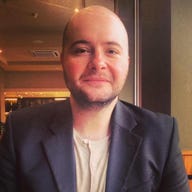Once infamous for fake news factories, this Balkan country is trying to reinvent itself

A few years ago, Macedonia became notorious for the fake news factories that sought to influence the last US presidential elections. Now, this tiny Balkan country, renamed North Macedonia in February, wants to make a name for itself in the startup industry.
'Doing a startup is a very lonely thing': Google's Campus and what makes Tech City tick
In 2016, Macedonia was a synonym for fake news. There were numerous so-called factories producing false political content, set up in small towns across the country. The factories ran hundreds of websites, targeting an audience in the US.
The main producers of this content were Macedonian teens and students, looking to make extra money. Little did they know that they would eventually end up in history textbooks – for all the wrong reasons.
SEE: Launching and building a startup: A founder's guide (free PDF)
Three years on, North Macedonia's youth is once again in the spotlight. Students are now actively engaging with many exciting startups in the country. One example is Solveo, a startup that pairs students with businesses looking for creative solutions to commercial problems.
Based on their knowledge and potential for developing ideas, students are given tasks and compete for prizes, while coming up with answers to everyday business challenges that companies face.
Founded by Macedonian entrepreneurs Ivan Zografski and Dragana Neshovska in 2016, the main idea behind the startup is the need for real innovations, primarily aimed at local businesses, Solveo's co-founder, Ivan Zografski tells ZDNet.
In the search for new products, enlisting the help of Macedonian youth was an obvious first step.
"One of our core methods for delivering solutions is through crowdsourcing and open innovation," Zografski explains, when asked why the consultancy preferred youth over expertise.
"We believe that 50 young and fresh minds can be at least 10 times more innovative than one professional and expert. When it comes to innovation, no one can be a true expert."
However, this doesn't mean Solveo excludes experts. According to the company's co-founder, Neshovska, it's quite the opposite.
"Younger generations can be more forward-looking and more radical, while experts are usually more business-oriented and realistic. For an innovation to be successful, a holistic approach is required," she says.
Based on its clients' needs, the role of the students in the process can vary.
"They can be the idea bearers if this is required. They can be a marketing team if marketing is needed. They can be designers or be a part of other teams during the process. They can test the final product to lower the risk of failure, or they can be the co-creators," Neshovska explains.
For 24-year-old Mila Josifovska, taking part in Solveo's projects has been a life-changing experience.
"The key takeaway for me was discovering the startup world and getting to know the entrepreneurial mindset that creates multiple opportunities. It got me an internship and later landed me a job," Josifovska tells ZDNet.
SEE: The state of women in computer science: An investigative report (cover story PDF)
When she was aged just 19 years, Ivona Zabaznovska participated in the first ever competition that Solveo launched.
"High-level managers got to see the solutions that my team and I developed, and we had the opportunity to hear direct feedback, which is gold," she says.
Ivona Barbutova, 20, had a role in projects about brand reputation management and improving online banking.
"We had clear indications on what the company challenges were and the steps we needed to go through. We went out of the box and came up with innovative solutions," Barbutova explains.
In just three years, Solveo has grown from two employees to more than a dozen, helping hundreds of students to work on projects for clients from Sweden, Switzerland, and the US.
However, when it comes to the further development of North Macedonia's startup scene, Solveo's founders agree that what is still lacking is more financial and administrative support.
"We see great potential, but there's a lack of support. We hope to see the universities become more involved by promoting a more entrepreneurial mindset to the younger generations."
According to Startup Macedonia, a non-profit organization that aims to develop networking between the startups, it only takes 24 hours to set up a new company and 15 days to get a work and residence permit.
North Macedonia's low cost of living, compared with the rest of Europe, is also an advantage when it comes to starting a business in the country. Its capital Skopje has been recently tipped to become a major startup center, together with Minsk, Moscow, Warsaw, and Tallinn.
Solveo is helping hundreds of students to work on projects for clients.